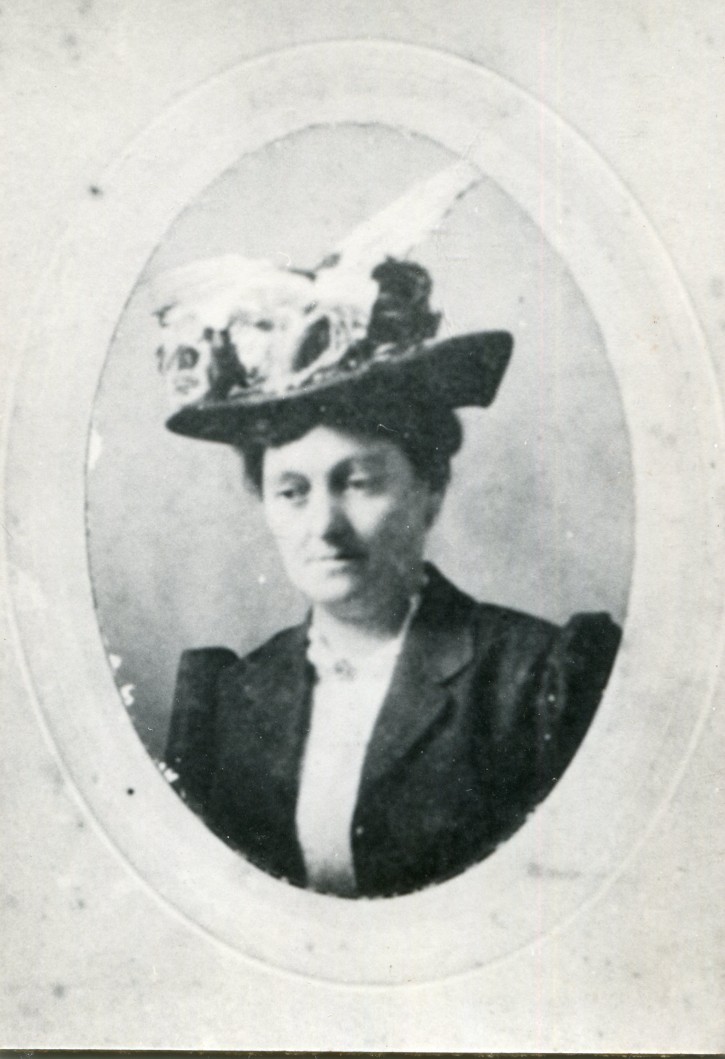
**This research was first published in the May 21, 2025 edition of the Chatham Star-Tribune newspaper as part of Kyle Griffith’s weekly segment entitled “Heritage Highlights.”
1890s Photo of Mrs. Serada Williams “Rada” Pigg, postmistress of Piggs P.O. and then nearby Dry Fork P.O.
Long before most professions were open to them, a small number of women quietly stepped into public roles as postmistresses. It was often out of necessity, and always within the boundaries of their rural communities. Appointment was a choice made by the Postmaster General in Washington, D.C. and recommendations were provided for the position at the local level. In quite a few cases of the early postmistresses, a look into their history revealed that they were recently widowed and took up the job in order to support her children. During the nineteenth century, it was often that a storehouse and the owner’s dwelling were one and the same or they were situated very close together. During the early 1800s, postmistress was one of the very few public jobs that were socially acceptable for women to hold, and didn’t become commonplace for nearly another century.
After delving into county records, it has been discovered that there were at least two postmistresses during the 1830s. As a note, it seems that they both held the position jointly with a male co-postmaster. Among the first was Mrs. Jane Goode Brightwell (born 1790) of the Centreton Post Office. Her maiden name was Poindexter and she became widowed in 1829. Starting in 1831, Jane served for about a year with her sister’s husband Francis Verser as postmasters in a country store that is thought to have been located near the Laurel Grove community. The office only lasted for five years, and the remaining time was under the management of Jane’s brother Philip Poindexter. The county’s second female postmaster was Mrs. Nancy Ann Peatross (born around 1762) of Edge Hill Post Office, which was detailed as being 4.5 miles north of Cascade P.O. when it formed in 1833. She is technically the earliest born female postmaster and also thought to be the county’s only case of a mother succeeding her son as postmaster. Her son William Leftwich Peatross established the office and managed it until his widowed mother Nancy (maiden name Leftwich) and a man named James Trotter were both appointed as postmasters and served from 1833 until 1837. Afterwards her grandnephew Dr. John Anthony took over for a couple years. Even though Nancy lived to be about ninety-five years old, she still passed away before the county saw another postmistress.
Following the end of the Civil War, Mrs. Emma Pleasants Hunt became the first woman in nearly thirty years to run a post office. Her maiden name was Mebane and she married Daniel R. Hunt, a merchant at Chalk Level. Emma was appointed on 27 February 1866, which was the same day that Mrs. Sallie M. Hubbard (maiden name Clark) was appointed postmistress of Mt. Airy Post Office. She succeeded her husband Joshua Stone Hubbard for nearly eight months, and then he was reappointed as postmaster. Two years later, in 1868, Mrs. Susan Lucy Ross, whose maiden name was Coram, became postmaster of Cascade. She had been a widow since 1852, shortly after the birth of her only son Robert. In 1869, the Peytonsburg Post Office was managed for one year by Mrs. Caroline A. Davis, whose maiden name was Kennedy.
There was a break of several years until Mrs. Sallie T. Hurt took up the position of postmaster at Hurt’s Store in 1877. The store was located within the limits of the modern day Town of Hurt. Born as Miss Sallie T. Douglas, she married Maj. John L. Hurt, who served in the Virginia Senate during her term of about seventeen years as postmistress. In 1880, Peytonsburg appointed their second female postmaster, Mrs. Cordelia S. Barksdale, who served for several months. She was a daughter of Lt. George P. Keesee and her husband William served as a country doctor near the Halifax County line.
The presence of women in the postal service steadily increased following the Pendleton Civil Service Reform Act of 1883, which also required that candidates pass certain qualifications and exams in order to compete and earn the position. However, the act took years to take effect in rural areas like Pittsylvania County. Especially into the 1890s and the first decade of the 1900s there was a more common presence of women as postmasters within small communities and towns like Chatham.

